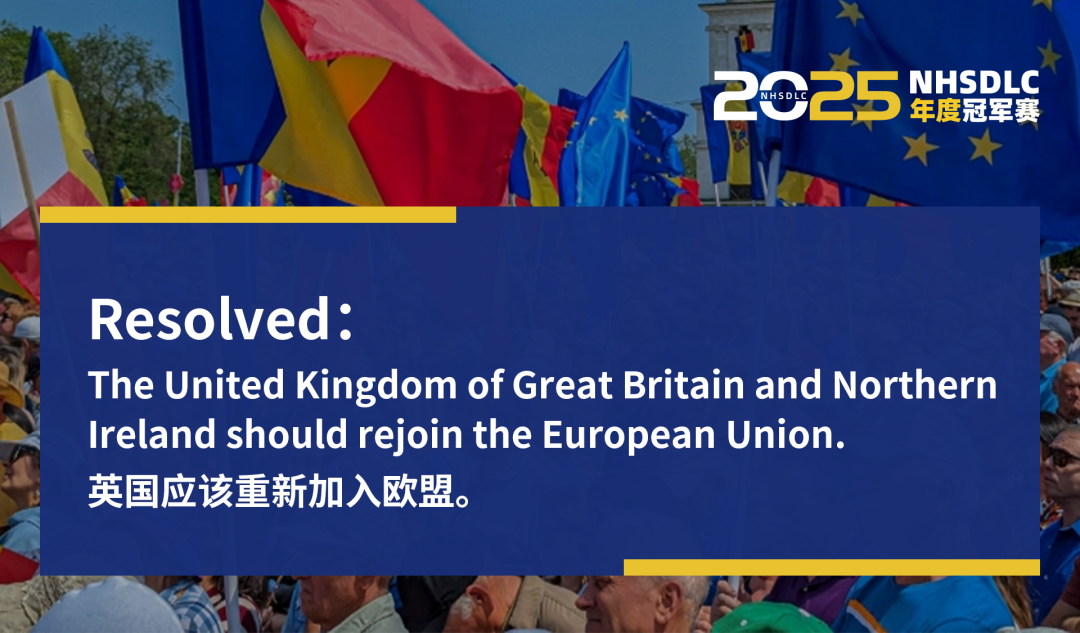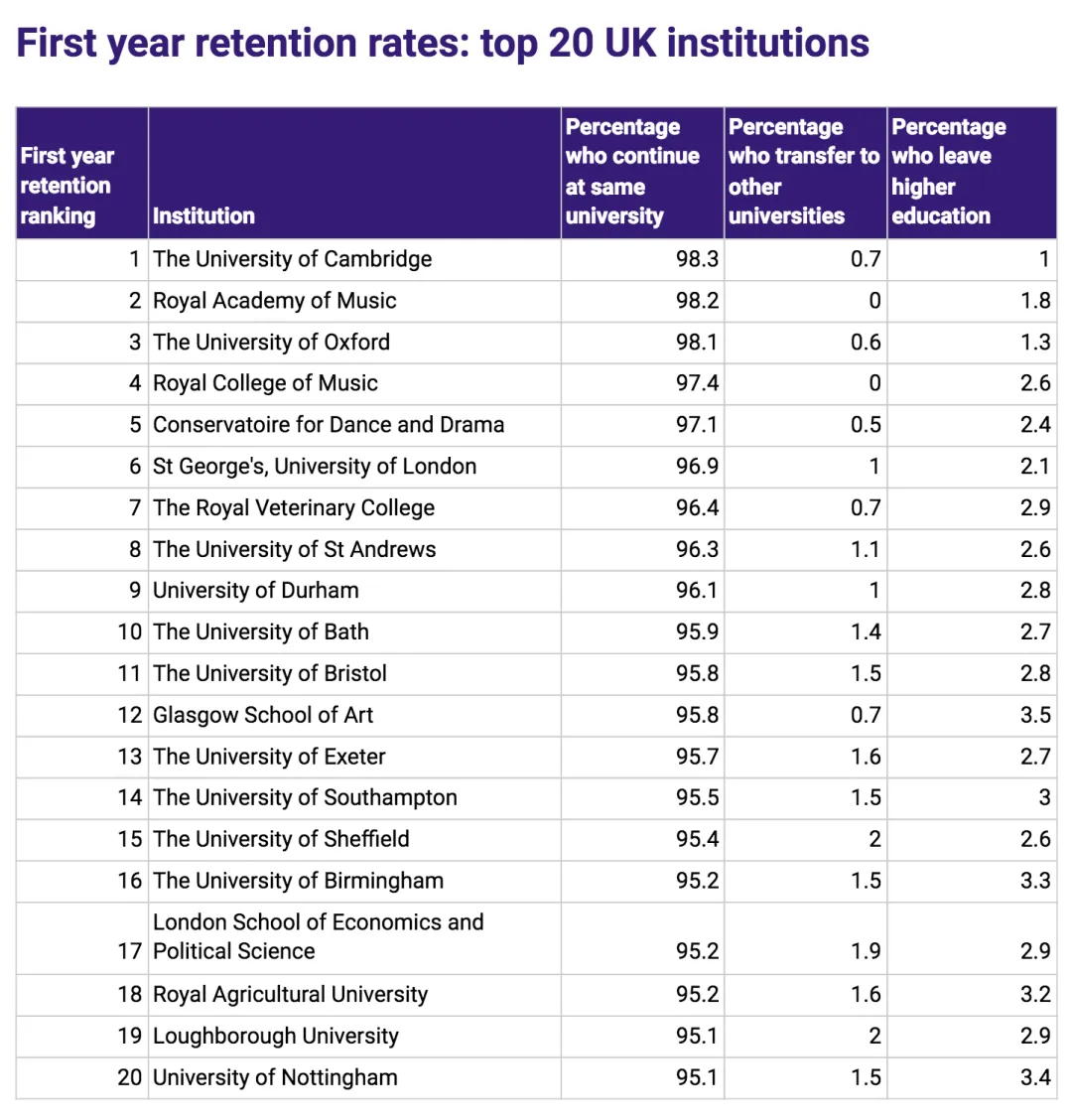上周,我们公布了学术资料包
为大家的备战提供了弹药
今天,我们继续为大家带来补给——
2025年度冠军赛
PF辩题 Sample Case
从正反双方提供视角和思路
帮助大家更好地理解辩题
希望大家能够从中得到启发
接下来,让我们一起看看
Sample Case的具体内容吧~

Sample Case
PRO
Resolved: resolution that The United Kingdom of Great Britain and Northern Ireland Should Rejoin the European Union.
We affirm the resolution that The United Kingdom of Great Britain and Northern Ireland Should Rejoin the European Union.
Our framework in this debate is cost-benefit analysis. The status quo of Brexit Britain has brought economic decline, labor shortages, and a democratic discontent. If we prove that rejoining the EU solves these crises with overwhelming benefits while outweighing any costs, we win this debate.
Contention 1 - Economic Benefits
Brexit has crippled UK trade,Aston University 2024 proves that UK exports to the EU fell by 22.9% in the first 15 months[1]after Brexit, costing over £67 billion annually.
Even worse the variety of UK products exported to EU dropped by 42% hurting small, medium and large enterprises.
Rejoining the EU removes all the bureaucratic red tape, restores full single market access, and reverses this decline.
Impact
The EU accounts for 41% of UK exports[2]and being part of the single market will pour in billions to the UK economy,create more jobs[3],attract more FDI[4]which will uplift the livelihood of the UK citizens.
Contention 2 - Labor market
According to Prof Jonathan from King College, Brexit brought about a 330,000 worker shortfall due to the end of free movement. The reportfound that low skilled sectors like transport (-128000 workers), hospitality (-67000), and agriculture (unharvested crops rotting due to missing seasonal workers) are hardest hit[5]. With fewer EU workers, productivity drops, supply chains fail, GDP is hurt and investment flees to Europe. Rejoining the EU will solves the worker shortage crisis.
Impact
Restoring Free Movement, rejoining reverses the outpouring of EU workers by removing the visa barriers. Before Brexit, EU migrants filled 20% of permanent agricultural jobs and 40% of food manufacturing roles critical gaps now left vacant.[6]
Economic Multiplier Effect, CER data shows non-EU migration only offset 28% of EU worker losses.Rejoining closes this gap. The NIESR estimates[7]a GDP boost by £30 billion annuallythrough regained productivity in key sectors.[8]
Contention 3 - Democracy
A poll by YouGov found that55% of Brittons say that Brexit was a mistake[9]with majorities in every age group under 65 supporting rejoining the EU[10]. The 2016 referendum is no longer democratically legitimate, today’s voters face the real-world results of Brexit like economic decline and still on-going labor shortages, the public opinion has shifted irreversibly.
Ignoring the will of the people completely undermines democracy.
Impact
It’s the responsibility of a democratically elected government to act upon the peoples will.
Refusing a new referendum despite clear demand fuels political disillusionment and erodes trust. 76% of Northern Ireland is pro EU. This political disconnect could spark a further push for Northern Ireland independence which weakens all countries within theUK economically and politically.[11]
Overall, the evidence is clear; Brexit has been a disaster for the United Kingdom. It has shattered trade, wrecked industries, and brought about critical labor shortages. meanwhile, democratic legitimacy has shifted, the British people now realize the mistake and demand change.
Rejoining the EU is the only solution that reverses economic decline, returns workforce stability, and brings policy back into alignment with the peoples will. The benefits: billions of regained trades, a renewed labor market, and returned democratic confidence, far exceed any costs.
And that is why we are proud to stand pro.
Sample Case
CON
Resolved: resolution that The United Kingdom of Great Britain and Northern Ireland Should Rejoin the European Union.
We negate the resolution that The United Kingdom of Great Britain and Northern Ireland Should Rejoin the European Union.
Contention 1 - Economic Harm
Rejoining the European Union entails a free flow of labor coming into the United Kingdom. This has had consequences for locals in the United Kingdom, as many jobs have been displaced as a result of foreign workers coming into the country and perhaps working for lower wages than what British locals are willing to work for.
According to BBC, a 10 percentage point increase in the proportion of immigrants working in the sector would be associated with a 1.88% reduction in pay. And according to Centre For European Reform, there are 330,000 workers movement after Brexit. It is obvious that local people in the UK have filled this vacancy. If the UK rejoined the European Union, what we could encounter would be: The EU regulations prohibit the UK from giving priority to its own workers; the Viking Line ruling of the European Court of Justice requires equal treatment of EU workers and prevents policies such as "British jobs for British workers".
The impact is that British workers have to compete with EU workers again. There are only two options before them: take a pay cut or lose the job.
Contention 2 - Failed EU Crisis Management
The European Union's ineffective crisis management would burden the UK with shared liabilities and limit its ability to respond independently to future challenges.
The 2008 financial crisis exposed the EU's slow and rigid response mechanisms. For instance, Greece faced severe economic turmoil, with unemployment peaking at 27.5% in 2013, as reported by NTL trust. The EU's austerity measures, mandated through bailouts from the EU and IMF, prolonged Greece’s recession by enforcing uniform policies that ignored national economic contexts, such as Greece’s inability to devalue its currency due to the Eurozone’s centralized monetary framework.
Similarly, according to Genschel & Jachtenfuchs 18, the 2015 migrant crisis highlighted the EU's disunity, as member states like Hungary and Poland rejected EU-imposed migrant quotas, undermining collective action. Carnegie Endowment 2018 further explains that the EU's reliance on external agreements, such as the 2016 deal with Turkey to manage migrant flows, further revealed its limited internal capacity for crisis resolution. Rejoining the EU would entangle the UK in these inefficiencies, restricting its ability to tailor swift, national responses to economic or geopolitical crises.
Contention 3 - Loss of Sovereignty and Democratic Control
Rejoining the EU would surrender UK sovereignty to undemocratic EU institutions. The unelected European Commission holds exclusive power to propose legislation, while the elected Parliament can only amend it - a clear democratic deficit. During the 2015 migration crisis, the Commission imposed refugee quotas despite opposition from member states (European Council, 2015), proving how EU rules can override national preferences.
The UK would lose control over key policy areas. EU law dominates in trade, immigration, and financial regulation, restricting Westminster's ability to legislate for British interests. For example, the ECJ's *Viking Line* ruling prevents governments from prioritizing domestic workers over EU migrants (ECJ, 2007). Post-Brexit, the EU has moved toward deeper integration in banking, fiscal policy, and defense - all areas the UK would likely be forced to join without its previous opt-outs.
Most critically, rejoining could permanently trap the UK in the EU. Former EU negotiator Michel Barnier admitted the bloc regrets allowing Article 50 withdrawals (Financial Times, 2020). Future attempts to leave might face even greater resistance. After regaining independence through Brexit, submitting to EU control again would ignore democratic principles and the 2016 referendum result. The UK would sacrifice self-governance for bureaucratic rule from Brussels.
Thus, we are proud to negate the resolution.
Reference:
1.https://www.aston.ac.uk/reputation/uk-trade-report-case-study
2.https://commonslibrary.parliament.uk/research-briefings/cbp-7851/
3.https://www.gov.uk/government/news/pm-secures-new-agreement-with-eu-to-benefit-british-people
4.https://cep.lse.ac.uk/pubs/download/brexit03.pdf
5.https://www.theguardian.com/politics/2023/jan/17/shortfall-of-330000-workers-in-uk-due-to-brexit-say-thinktanks
6.https://truthout.org/articles/consequences-of-brexit-are-surfacing-as-uk-faces-severe-labor-shortages/
7.https://www.niesr.ac.uk/wp-content/uploads/2022/11/2022-NIESRs-Autumn-Statement-Response-FINAL.pdf?ver=Gs3Gdb3rvum9bh6NrtmK
8.https://www.thenational.scot/news/24398147.snps-claim-30-billion-boost-rejoining-eu-not-unreasonable/
9.https://yougov.co.uk/politics/articles/51484-how-do-britons-feel-about-brexit-five-years-on
10.https://www.statista.com/chart/30263/share-of-uk-remain-voters-supporting-rejoining-the-eu/
11.https://www.economicsobservatory.com/what-were-the-economic-consequences-of-irish-independence
12.“Reality Check: Would Brexit Lead to a Rise in Wages?” BBC News, BBC, 26 Apr. 2016, www.bbc.com/news/uk-politics-eu-referendum-36139282.
13.“How the Greek Golden Visa Has Resurrected Greece’s Economy.” NTL Trust, 25 Mar. 2025, ntltrust.com/ru/news/second-residency/how-the-greek-golden-visa-has-resurrected-greeces-economy/.
14. Genschel & Jachtenfuchs, 2018; Slominski & Trauner, 2018, cited in "Crisis and polity formation in the European Union," pmc.ncbi.nlm.nih.gov
15.Carnegie Endowment, "The EU and the Creative and Destructive Impact of Crises," published Oct. 17, 2022















